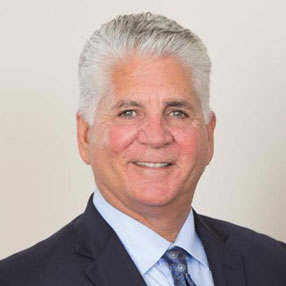Judges have a wide range of choices when sentencing defendants. These range from pre-trial diversion programs to long-term imprisonment. Within statutory parameters that specify the range of options available for each criminal offense, judges aim to impose sentences suited to each defendant’s circumstances. One benefit of judicial discretion is that it avoids a one-size-fits-all approach to offenders, which considers the reality that criminal offenders come from a wide variety of backgrounds and circumstances.
In some jurisdictions, you may have the option of pursuing alternative methods of dealing with certain cases, such as by electing to participate in a diversion program, or by requesting deferred adjudication. Such options might avoid a conviction altogether.
Judges Have a Wide Range of Choices When Sentencing Defendants!
These range from pre-trial diversion programs to long-term imprisonment. There are statutory parameters that specify the range of options available for each criminal offense. Judges may impose sentences suited to each defendant’s circumstances within those parameters. One benefit of judicial discretion is that it avoids a one-size-fits-all approach to offenders, which considers the reality that criminal offenders come from a wide variety of backgrounds and circumstances.
Pre-Trial Diversion
Pre-trial diversion refers to any program where a defendant agrees to complete specified activities or accept certain sanctions in exchange for the prosecution dropping the charges following the successful completion of the activities or abiding by the sanctions. Pre-trial diversion is most often made available to first-time offenders of less serious offenses. For example, someone with no criminal history who is convicted of misdemeanor vandalism may be required to make restitution for the vandalism and complete some community service. On completion of these terms, the case will be dismissed. The pre-trial diversion requires some measure of accountability while allowing first-time offenders to avoid the social stigma of having a criminal conviction, which can sometimes interfere with obtaining employment or renting an apartment.
Fines
Fines are another sentencing option that has been used to punish defendants. Imposing a financial burden on offenders will both punish and serve as a deterrent. The Supreme Court has ruled that a defendant who does not pay a fine because he truly does not have the money to pay, cannot be incarcerated as punishment for failure to pay. The Supreme Court has ruled that such incarceration is fundamentally unfair.
Probation
Probation requires defendants to abide by certain specified conditions, and if they fail to do so, they risk having their probation revoked and replaced with incarceration. Probation can be supervised or unsupervised. The conditions attached to either type of probation can vary greatly. Judges have the ability to include a wide range of conditions, so long as a defendant’s probation conditions are reasonably related to his crimes and situation.
Community Service
Community service (which can be part of a pre-trial diversion) requires defendants to complete a specified number of hours of work benefiting the community. The work may include menial tasks like picking up litter or things like speaking to children at schools about staying away from drugs. While community service may be imposed without probation, it is more often imposed as a condition of probation.
Community Service
House arrest, also known as home confinement, can be individually customized. Some offenders may be required to remain at home twenty-four hours per day while others may be allowed to go shopping or even to work while remaining at home at all other times. Electronic monitoring devices, often worn by defendants around their ankles, can document electronically a defendant’s whereabouts.
Outpatient and Inpatient Treatment Programs
Completion of an outpatient or inpatient treatment program is another sentencing option available to judges. Defendants may be allowed to attend programs that address drug abuse, mental health (such as anger), and other issues.
Incarceration
The final sentencing option is incarceration, which is mandated for most serious crimes. Within legislative parameters, the judge decides how long a defendant will be incarcerated, and whether there will be continued community-based supervision following release. Misdemeanor sentences are served in the county jail. For felony offenses, defendants may serve sentences shorter than one year in county jail but must serve longer sentences in a state or federal prison.
Do You or Someone You Know Need Help With a Criminal Charge?
Under many circumstances, an experienced criminal defense attorney can guide you toward a sentence other than jail time.
Working with an attorney who knows the local ‘lay of the land’ is important in any criminal case. Such knowledge can help lead to a plea bargain, reduced sentence, or even an alternative to a guilty verdict and/or incarceration.
Why Fernandez & ?
If you or someone you know has been accused of a criminal offense in the Tampa Bay area and need help, Fernandez & will provide a free consultation and guide you through the process. The attorneys at Fernandez & have experience and will work vigorously to protect your rights, and in many cases, may be able to help you avoid a criminal conviction
It’s Important to Have Experience on Your Side!
At Fernandez & , Attorneys At Law, the firm’s partners have significant experience in criminal defense. Daniel J. Fernandez has conducted hundreds of criminal trials in his more than 30 years as a criminal defense attorney. He started his career as a state prosecutor and became chief of the Narcotics division before launching his own private practice in 1985. also has experience on both sides of the courtroom. Having worked as a state prosecutor gave him more trial experience than most attorneys achieve in a lifetime. Together, they have more than 500 trials between them. You can reach them for advice 24/7 by calling (813) 229‑5353. Hablan español.






